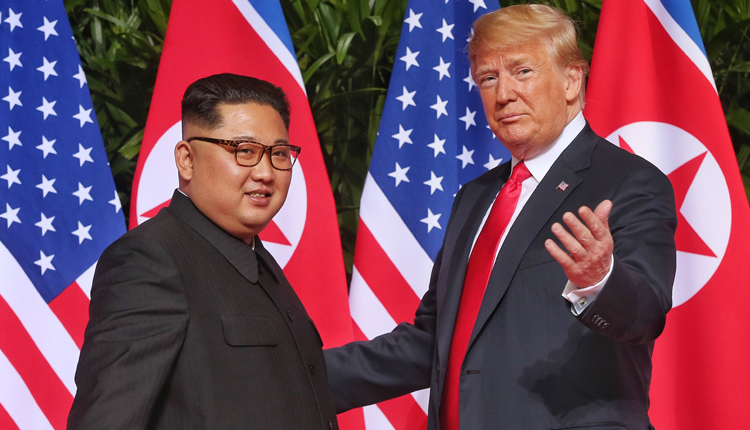The potential opening up of North Korea’s economy following its peace overtures with the United States Tuesday could mean massive commercial opportunities, said U.S. investment mogul Mark Mobius.
Infrastructure and mining present the first points of interest for Mobius, the longtime executive chairman of Templeton Emerging Markets Group and founder of Mobius Capital Partners, who pointed to North Korea’s population of 25 million as a boon for investors if it were to be added to South Korea’s market of 50 million.
“That means a much bigger market, and to me the most exciting thing is the opportunity to have a bridge between South Korea, China and Russia. Because then you would be able to have railroads and roads going north through North Korea into these huge nations,” he told CNBC’s “Squawk Box Europe.” “It’s a tremendous opportunity.”
U.S. President Donald Trump and North Korean leader Kim Jong Un made history in Singapore during the first ever summit between sitting leaders of the two countries and longtime adversaries. The document signed at the meeting’s conclusion promised to pursue peace and denuclearisation of the Korean Peninsula, though few specifics were provided, and no mention of timelines or a particular definition of “denuclearisation.”
Still, Trump has offered to lift economic sanctions on the North that have for decades kept it locked out of international markets, though he told press that they remain in place for now.
Investors have previously made note of North Korea’s large, disciplined and relatively cheap workforce, though some question the ability of the population to catch up with a modern economy, given how closed off the country is from much of the rest of the world. Mobius was confident in the potential of the labor force.
“The North would be able to catch up very, very quickly, because the educational background is pretty good in the North, and let’s face it, look what they developed — nuclear capability is a technological feat with amazing proportions,” Mobius said. “So I believe they would catch up very quickly, and the South would help them do that.”
South Korea has already offered concessions of aid and trade as part of potential peace deals.
Aside from the workforce, North Korea also has potentially trillions of dollars’ worth of natural resources — North Korea Resources Institute in Seoul estimated in 2013 that the country’s mineral reserves could be worth $6 trillion. But regional analysts warn of dilapidated infrastructure and a lack of reliability when it comes to repatriating profits from the hermit country, with one Chinese company calling its venture there a “nightmare.”
Still, Mobius — who has been operating in emerging and frontier markets for more than three decades, was bullish.
“We look at it first in terms of the mining capability — rare earths, oil, gas, there are tremendous resources in the North that could be exploited,” he said. “Then of course the consumption revolution will take place once the standard of living begins to move up. So I’d say in the beginning it would be the resources and the transport — railroads, roads, going up north through to China and to Russia.”
Source: CNBC
